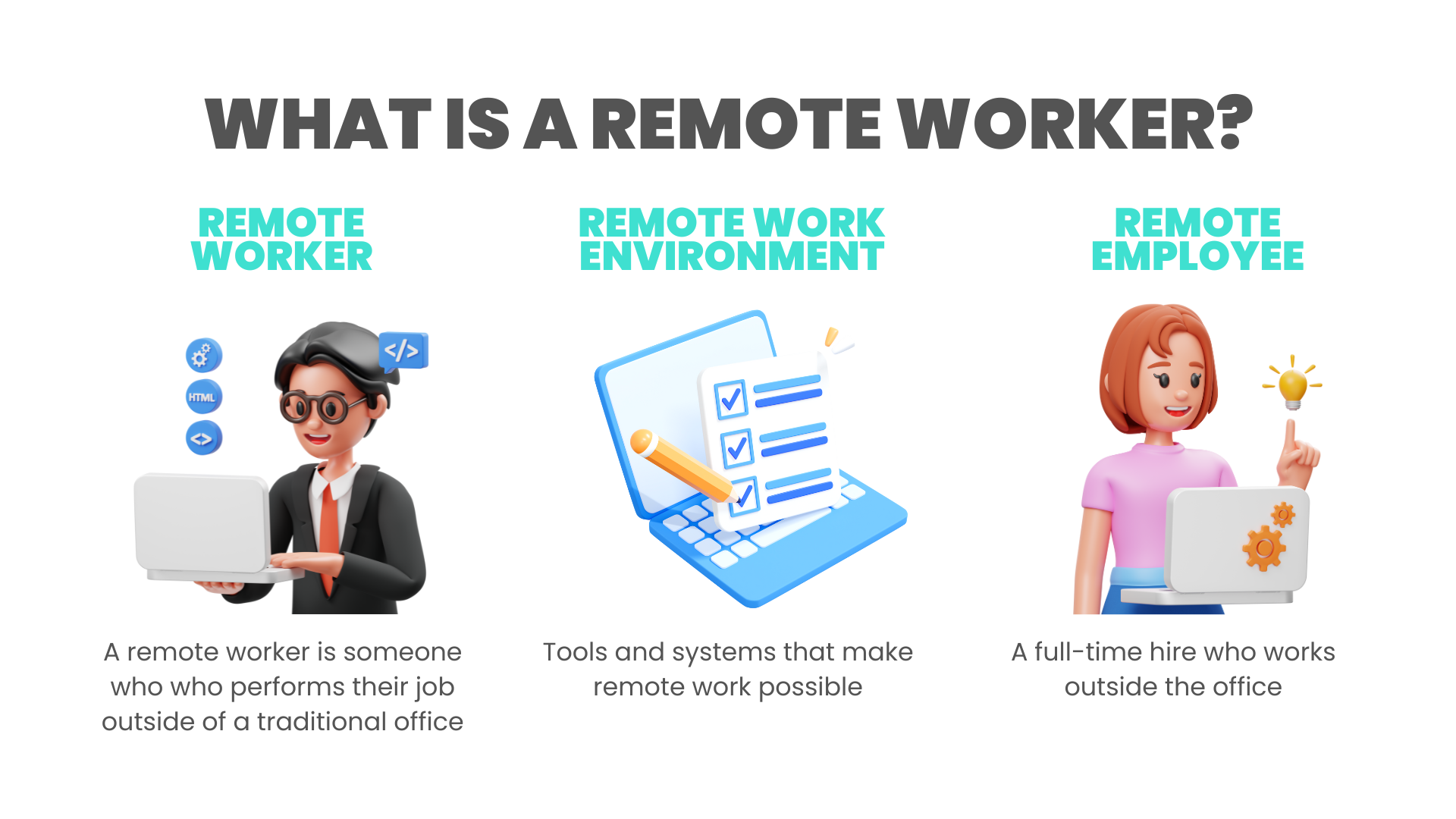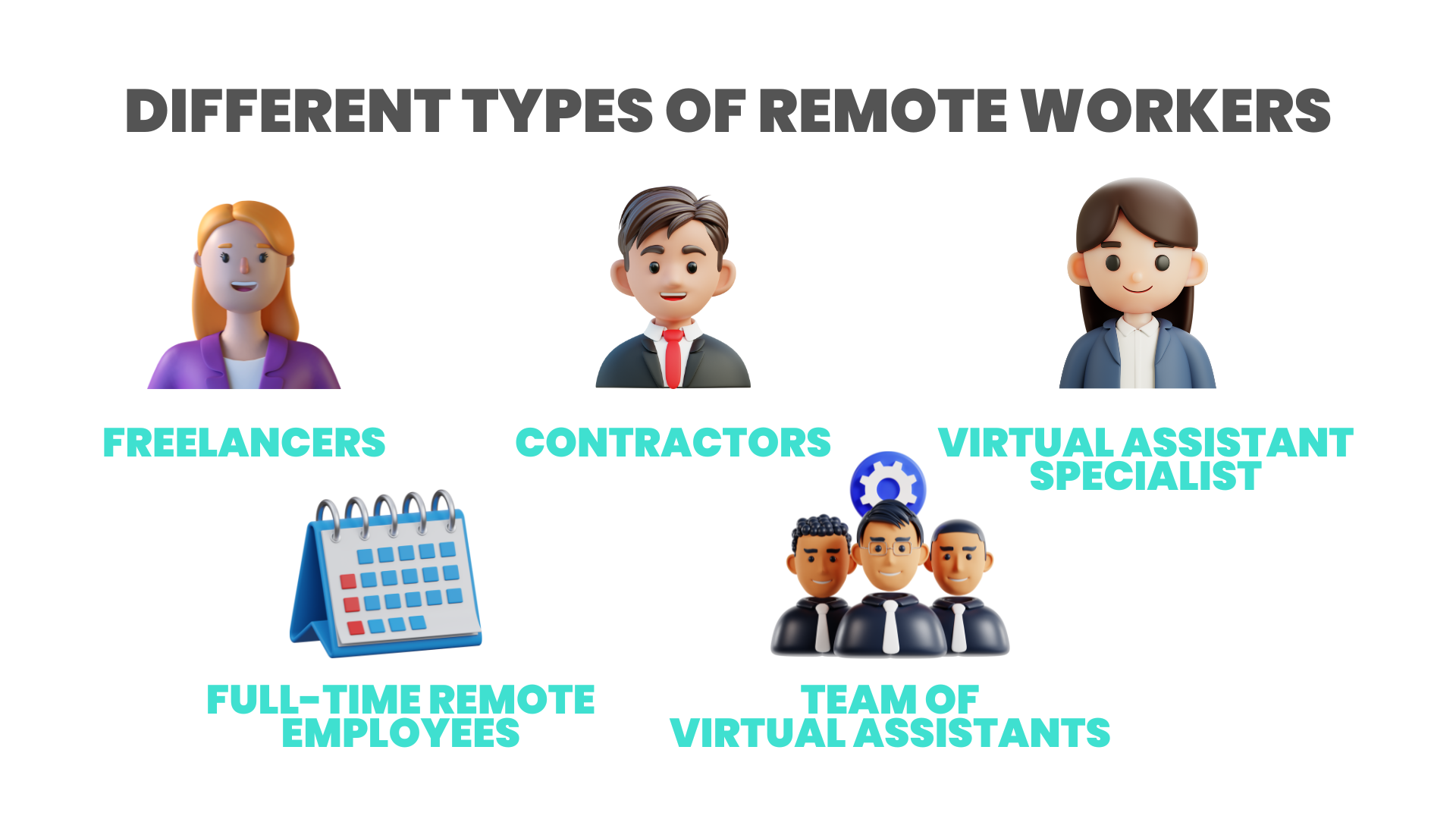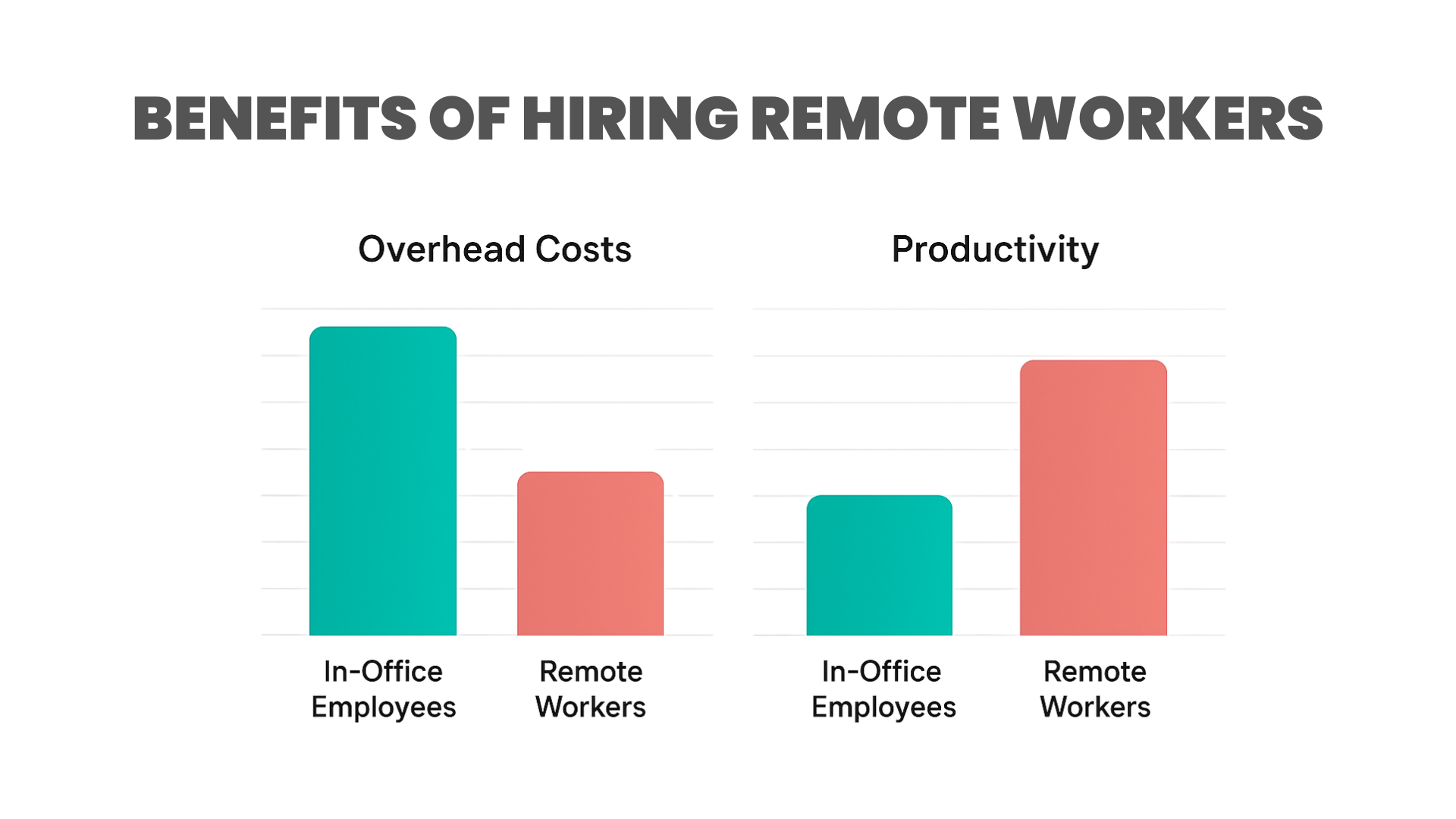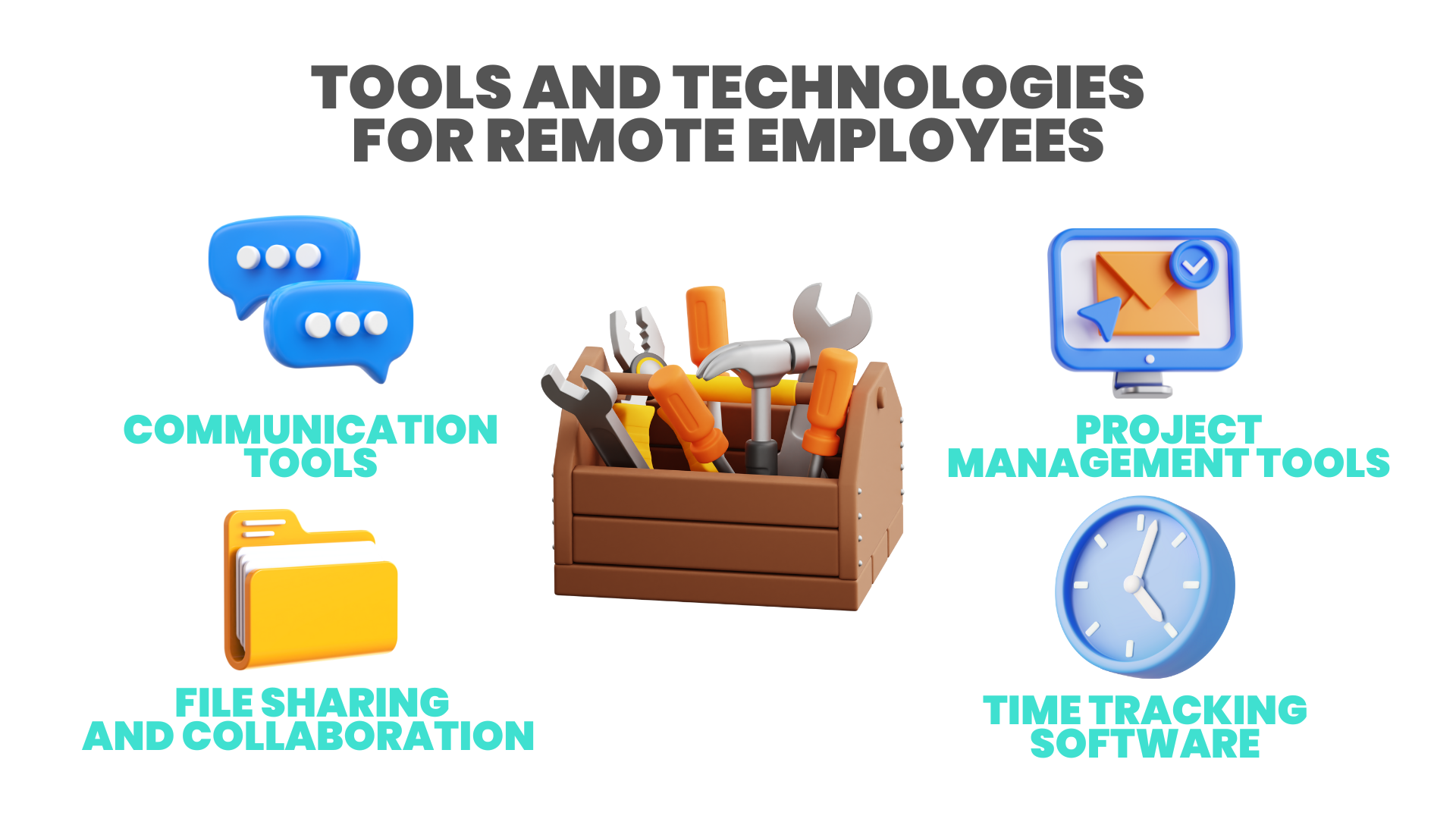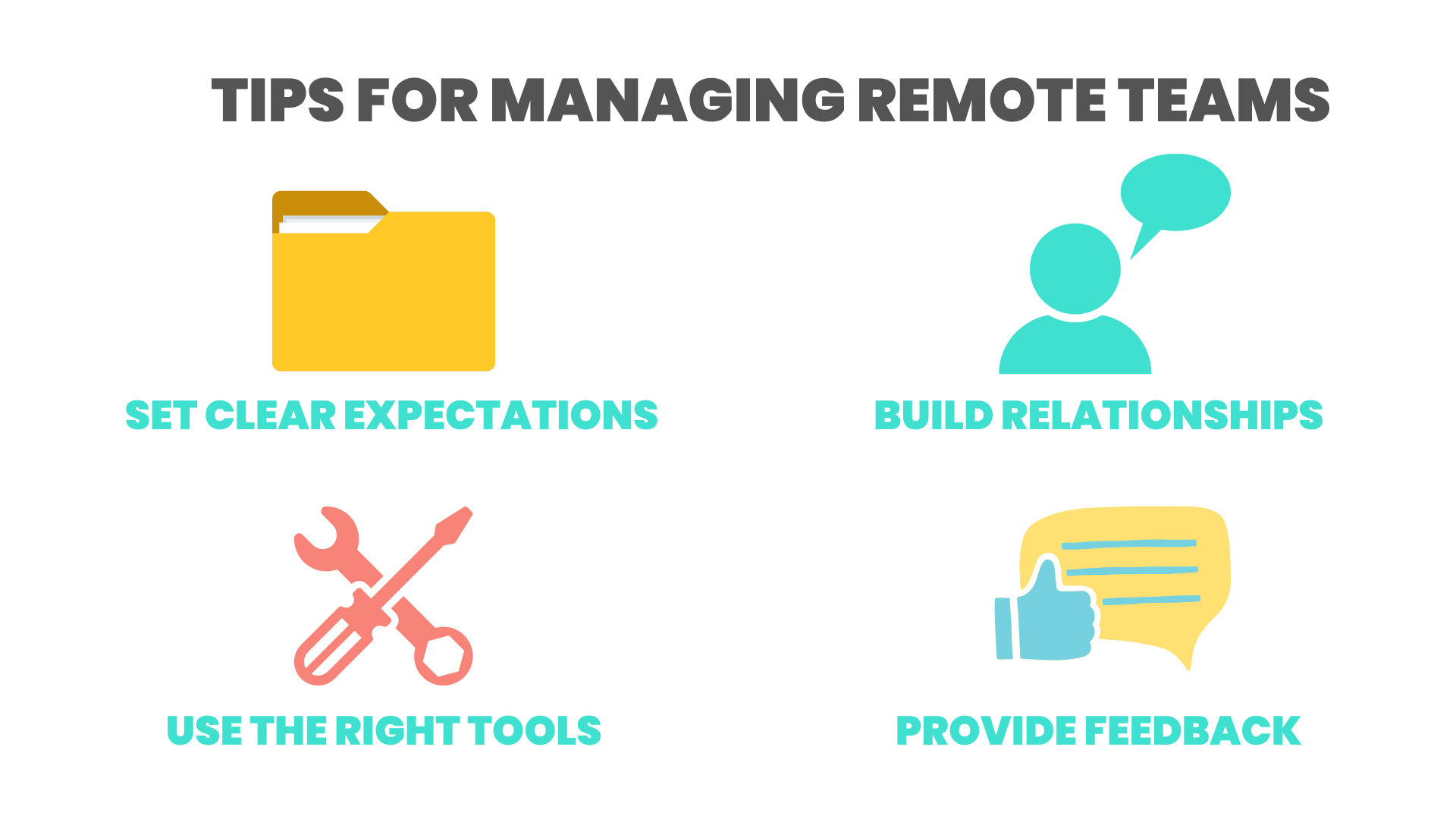What is a Remote Worker and Its Different Types
Remote work has become one of the hottest business conversations in recent years. Some leaders swear by it, claiming it’s the smartest way to tap into global talent, while others are still skeptical about people working outside the office. Chances are, you’ve wondered the same thing: should your company hire remotely? The best way to decide is by first understanding exactly what a remote worker is, the kinds of remote professionals available, and how they can help your business thrive.
In this guide, you’ll get a clear and simple breakdown of everything you need to know about remote work. You’ll explore the different types of remote workers, the benefits they bring, the tools that keep them productive, and the strategies that make managing them easier. By the end, you’ll know if hiring remote employees or even building a team of virtual assistants could be the game-changing move your business has been waiting for.
Related Article: How To Build Your Own Remote Team Step by Step
STOP MANAGING TASKS. START LEADING.
SMART Delegation helps you reclaim your role as CEO while building a stronger team.
What is a Remote Worker?
A remote worker is someone who performs their job outside of a traditional office. They might work from home, a co-working space, or even while traveling, as long as they have internet access. When you ask what is a remote worker, you’re really asking about flexibility in how businesses can get things done. These workers rely on technology to communicate, stay organized, and deliver results no matter where they are located.
To understand remote work better, you should also ask: What is a remote work environment? This refers to the setup that makes remote work possible. It’s not just the physical space a worker chooses, but also the digital tools, policies, and systems that keep everything running smoothly. A strong remote work environment ensures that teams collaborate effectively, projects stay on track, and accountability remains high.
You may also hear the term remote employee used interchangeably with remote worker. So, what is a remote employee? It’s someone officially employed by your company who simply works outside the office. Unlike freelancers or contractors, a remote employee usually has fixed hours, defined responsibilities, and may even receive benefits just like in-office staff.
Different Types of Remote Workers
Freelancers
Scope of Work
Short-term, specialized tasks (e.g., design, writing, coding).
Commitment Level
Project-based, flexible schedule
Best For
Businesses needing quick expertise without long-term contracts.
Contractors
Scope of Work
Longer fixed projects (e.g., app development, marketing campaigns).
Commitment Level
Medium-term (months at a time)
Best For
Projects requiring steady focus but not a permanent hire.
Full-Time Remote Employees
Scope of Work
Daily operations, meetings, aligned with company goals.
Commitment Level
Long-term, set working hours
Best For
Companies ready to integrate remote staff as permanent team members.
Virtual Assistant Specialists
Scope of Work
Specific functions like bookkeeping, social media, or podcast management.
Commitment Level
Ongoing, part-time or full-time
Best For
Businesses needing skilled support in specialized areas.
Team of Virtual Assistants
Scope of Work
Wide coverage across multiple areas (admin, marketing, customer support).
Commitment Level
Flexible, scalable
Best For
Growing businesses that need multiple experts without hiring full staff.
Freelancers
Freelancers are independent professionals who usually work on short-term projects. They might help you with tasks like designing a website, writing blog content, or coding software. Because freelancers typically manage multiple clients at once, their availability may vary, but they are often cost-effective for specialized tasks. If you need quick expertise for a project without long-term commitments, freelancers can be a solid choice.
Related Article: What Is a Remote Content Writer & How to Hire One?
Contractors
Contractors are similar to freelancers, but they usually work with you for a longer, fixed period. For example, you may hire a contractor for six months to develop a new app or run a marketing campaign. They’re reliable for projects that require consistent attention but don’t necessarily need a permanent hire. Contractors are a great middle ground if you want commitment without the obligations of full-time employees.
Full-Time Remote Employees
A remote employee works exclusively for your company, just like someone in the office. They have set hours, attend meetings, and align directly with your business goals. By hiring full-time remote employees, you get consistency, accountability, and loyalty. This setup is best if you want long-term support and are ready to treat remote staff as a permanent part of your organization.
Virtual Assistant Specialists
Virtual assistant specialists are trained professionals who handle specific areas of business. For instance, one VA might focus on bookkeeping, another on social media, and another on podcast management. Their targeted skills allow them to handle tasks efficiently and give you back more time. If you need extra support in specialized areas without hiring multiple full-time staff, VA specialists are the perfect solution.
Team of Virtual Assistants
Sometimes, one person isn’t enough, and that’s when a team of virtual assistants becomes valuable. This setup gives you access to multiple experts at once, covering everything from admin tasks to marketing and customer service. A team approach means that if one VA is unavailable, another can step in, keeping your operations running smoothly. For growing businesses, a team of virtual assistants offers scalability and flexibility that’s hard to beat.
Benefits of Hiring Remote Workers
Hiring remote workers goes beyond saving money. Once you understand what is a remote worker, you’ll see that they bring a wide range of benefits to your business. They give you flexibility, access to talent you may not otherwise find, and help you run your company more efficiently. Here’s a deeper look at the key advantages.
Cost Savings
One of the biggest advantages of remote workers is reducing overhead expenses. You no longer need to pay for office space, utilities, or equipment for every employee, which can save your business thousands of dollars every year. These savings can be reinvested in marketing, product development, or other areas that fuel growth. By lowering costs, you free up resources to focus on expanding your company instead of covering extra operational expenses.
Access to Global Talent
Remote work opens the door to a global talent pool, giving you access to professionals with skills that may not exist in your local market. Instead of being limited to the talent within commuting distance, you can hire the best candidate for the job no matter where they live. This means you can find highly specialized experts more easily and add new perspectives to your team. Hiring globally makes your company more competitive and adaptable in fast-changing industries.
Flexibility and Scalability
Remote workers also give you the ability to scale up or down based on your needs. For example, you can bring in virtual assistant specialists for a specific project or hire a team of virtual assistants to provide support across multiple areas of your business. This flexibility lets you adjust quickly as your company grows or as workloads fluctuate throughout the year. Having scalable support allows you to keep moving forward without worrying about being overstaffed or understaffed.
Related Article: What Our GoHighLevel Virtual Assistant Team Does for You
Improved Productivity
Many businesses find that remote workers are often more productive than in-office employees. Working remotely reduces distractions like office noise and unnecessary meetings, allowing them to focus on the tasks that matter most. Remote workers also have the freedom to structure their day in a way that maximizes their efficiency, which benefits both them and your business. When you give people the tools and trust they need, they often deliver stronger results and higher-quality work.
Tools and Technologies for Remote Employees
Remote success depends on using the right tools. A strong remote work environment relies on technology that supports communication, collaboration, and accountability. Without these systems, managing remote employees can feel chaotic, but with them, it becomes seamless. Here are the main tools that help remote teams thrive.
Communication Tools
Communication is the foundation of remote work. Platforms like Zoom and Google Meet make it easy to hold face-to-face meetings even when your team is spread out across the world. Messaging tools such as Slack or Microsoft Teams keep quick conversations flowing throughout the day. With these tools in place, you can replace in-office chats and ensure your remote employees always feel connected and informed.
Project Management Platforms
Organizing projects is much easier when you use digital platforms like Asana, Trello, or Monday.com. These tools help you assign tasks, set deadlines, and track progress in real time. Everyone on the team knows exactly what they should be working on and when it needs to be completed. By keeping projects transparent, these platforms reduce confusion and ensure accountability across your entire team.
File Sharing and Collaboration
Document sharing is essential for remote work, and cloud tools like Google Drive or Dropbox make it effortless. These platforms allow multiple people to work on the same document at once and keep files organized in a single location. Instead of chasing email attachments or outdated versions, your team always has access to the latest files. This improves collaboration and keeps projects moving without unnecessary delays.
Time Tracking Software
Time tracking tools like Hubstaff and Time Doctor are valuable for keeping teams accountable. They help you monitor working hours and give you insight into how much time tasks actually take. This level of transparency builds trust while also allowing you to manage workloads more effectively. By tracking time, you can ensure fair billing for clients and accurate productivity analysis for your business.
Tips for Managing Remote Teams
Managing a remote team doesn’t need to feel complicated. With clear systems and a thoughtful approach, you can lead remote workers as effectively as in-office staff. The goal is to create a structure that supports productivity, fosters connection, and keeps everyone aligned with business goals. Here are four key strategies to make remote management easier.
Set Clear Expectations
Clarity is the backbone of successful remote work. Define working hours, deadlines, and performance standards right from the start so there’s no confusion. When everyone knows what is expected of them, projects stay on track and accountability becomes much simpler. Setting expectations upfront helps remote workers perform with confidence and keeps you in control of the workflow.
Build Relationships
It’s easy for remote workers to feel disconnected if you only talk about tasks and deadlines. Take time to build relationships through casual conversations, virtual team-building activities, or regular one-on-one check-ins. When your workers feel valued as people, they become more engaged and motivated. Building relationships also creates trust, which is essential for long-term collaboration.
Use the Right Tools
Technology is your best friend when managing remote employees. Equip your team with reliable communication tools, project management software, and secure file-sharing systems. Having the right setup reduces delays and makes collaboration smooth, no matter where your team members are located. A strong remote work environment ensures that your employees can succeed without unnecessary obstacles.
Provide Feedback
Feedback is critical for growth and motivation. Remote workers benefit from regular recognition of their successes and constructive guidance on how to improve. This ongoing communication helps them stay aligned with your business goals and feel like an important part of your company. When you provide consistent feedback, you also build loyalty and keep morale high.
Is Remote Employment Right for You?
Smart Virtual Assistant
👍🤵
Smart Virtual Assistant 👍🤵
So, should you hire remote workers? The answer depends on your business needs, but the benefits are hard to ignore. If you need cost savings, access to specialized skills, and flexibility, remote workers are an excellent option. A team of virtual assistants or virtual assistant specialists can help you handle multiple tasks, scale your operations, and focus on growth.
At Smart VAs, we specialize in connecting businesses like yours with a skilled team of virtual assistant specialists. Our services give you access to a dedicated team that can manage everything from administrative work, social media management to specialized business tasks like bookkeeping, web design, and podcast management. With us, you’ll never feel like you’re managing remote work alone. Book a call now!
READY TO FINALLY DELEGATE LIKE A CEO?
Learn the 7-day plan to build your dream VA team and step out of the weeds.
Frequently Asked Questions
-
You may face challenges such as time zone differences, communication gaps, or feelings of isolation among your team. These are manageable with the right systems in place. Using communication tools, scheduling overlap hours, and encouraging team bonding can help you overcome them.
-
Accountability comes from setting clear goals and using the right tracking tools. Project management platforms, regular check-ins, and time tracking software provide visibility into progress. When expectations are clear, remote workers usually deliver strong results.
-
Yes, depending on the country your worker is based in, you may need to follow labor laws, tax requirements, or data protection regulations. It’s important to review these before hiring. Working with agencies like Smart VAs can simplify this process, as compliance is already built into the services.
-
Inclusion is key. Invite your remote employees to team meetings, celebrate their achievements, and encourage casual conversations. These small steps make them feel like valued members of your team.
-
Absolutely. Many businesses now operate entirely with remote teams and see continued success. As long as you maintain a strong remote work environment and use effective management practices, remote work can support long-term growth.
Ready to Work Smarter, Not Harder?
Smart VAs provides a team of highly skilled specialists from around the world, ensuring seamless support no matter the time zone. We take pride in delivering efficient, fast, and high-quality service so you can focus on growing your business. With one subscription plan, you gain access to a complete team of digital marketing experts that’s customized to your unique needs, eliminating the need to train and look for one yourself!


